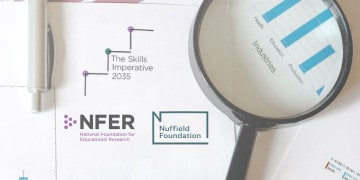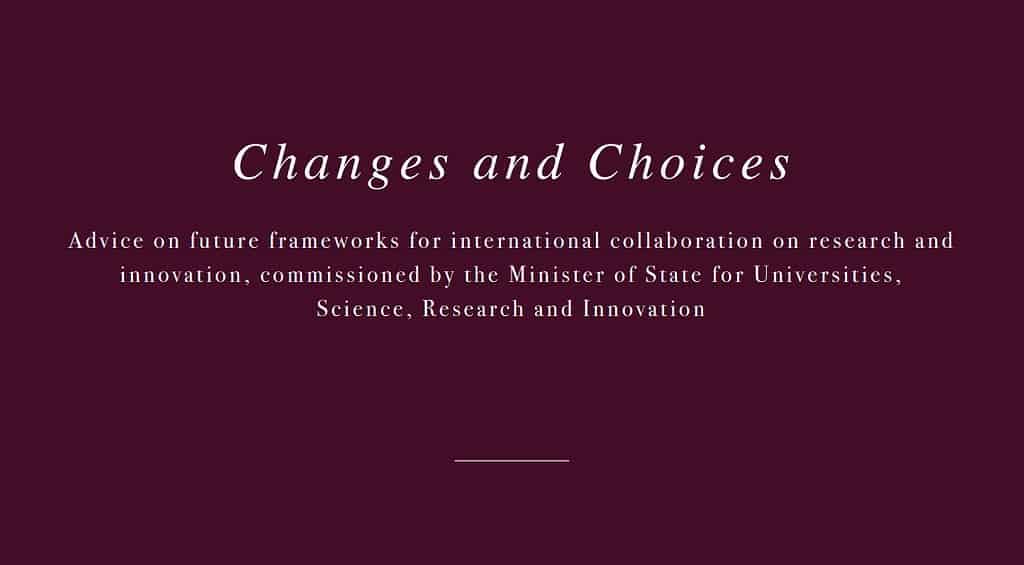Ian Robinson, Senior Manager at Fragomen Worldwide Immigration, on the effect of the Government’s migration policies
Moves to reduce immigration will affect science and engineering
04 Nov 2015
My guess is that bidding for a research grant is ultimately no different to submitting for any piece of work. Your prospective client needs to see you have the best people and ideas available and can deliver the right results at a reasonable price.
If you are bidding for a grant and want a foreign scientist next year, you may need to think again about the people or the price.
Immigration has not been out of the news since the summer. Heart breaking stories about Syrian refugees have been interspersed with announcements that the government will create a more hostile environment for illegal migrants looking to live, work or rent a flat in the UK.
In the background the Prime Minister and Home Secretary have set out the first steps they will take towards substantially reducing net migration. There is no surprise here. Net migration was a little below 200,000 when the Coalition Government was formed five years ago, with the Conservative Party committed to halving it. In March 2014 it was up to 236,000, now it has reached 330,000.
What does this have to do with science? The Home Office will struggle to reduce net migration unless they tighten every visa category and are starting with skilled non-EU workers, including scientists. It looks like it will become more expensive and much harder for employers to sponsor non-EU workers.
First off, the Home Secretary has asked the Migration Advisory Committee (MAC) to consider the case for increasing minimum salaries that must be paid to sponsored workers across the labour market. For many jobs this could mean increases of between £10,000 and £25,000. The minimum salary for a biochemist could rise from around £27,000 to £47,000.
Personally I can’t see an increase of as much £20,000 happening. Ministers and officials understand the importance of science to the UK economy and will not want to damage the sector. But they also understand and embrace the imperative to reduce the number of migrants entering the UK so I can’t see minimum salaries staying level either.
The MAC will also make recommendations on the imposition of a health levy for non-EU workers who are sent to the UK for temporary assignments and a skills levy for all sponsored workers.
The health levy would probably be £200 for each year of a visa granted to an Intra-Company Transferee, transferred from an overseas branch of their company. The employee’s family members would have to pay too. The policy already applies to most other visa applicants, with some exceptions.
Less is known about the skills levy. The MAC report will make recommendations on the cost of the levy, and the Immigration Bill 2015 contains provisions that would make it law.
Cost is important and you can only pay what you can afford, but their most substantial proposal could have an even bigger impact. The MAC are looking at whether to stop companies entirely from sponsoring non-EU workers who are not considered highly specialised experts, or to be filling a role that is suffering from a national skills shortage. It might seem self-evident to me that scientists are highly specialist, but I am not the one who needs convincing.
The MAC will submit its report and recommendations on all of this in mid-December, with any changes likely to take place next year. The report will probably be published in mid-January, and I would expect the Home Office to announce any new policy in February. New law would then be published on 16 March 2016, to take effect three weeks later, on 6 April.
What can be done about this? The first point is obvious – argue against the changes.
The general direction of travel is pretty clear for immigration. The government wants and expects immigration numbers to fall and that will mean fewer non-EU workers. It seems like a fair proportion of the UK population agree with them. The trick is for employers and industries to convince the MAC not to target their workers.
To be fair science is in a relatively strong position. The MAC and the Home Office are admirably consultative – more so than governments in other countries – CaSE and the Royal Society have successfully argued in favour of science lots of times during the last five years.
In 2010 and 2011, they secured a variety of policy concessions as the rules got harder for other sectors, for instance the under used but excellent Exceptional Talent visa. They subsequently secured concessions that make it easier for scientists to settle here, or at least easier relative to other sectors.
The second point is just as important. If you are bidding for work remember that costs could go up. It is difficult to plan around legal changes that won’t definitely happen, but being ready for them should at least put you on the front foot. That might mean asking for more money (and maybe you know the answer already), holding back some of your funding or thinking about who and when you recruit.
Related articles

The Physiological Society’s policy team on the health challenges facing older workers and the urgent need to develop a strategy to ensure older people are happy and healthy at work.

Jo Reynolds, Director of Science and Communities at the Royal Society of Chemistry, on the RSC’s new summary report looking to unlock the potential of deep tech SMEs.

Lisa Morrison Coulthard, Research Director at the National Foundation for Education Research, on the Nuffield Foundation funded five year research programme providing insights into the essential employment skills needed for the future workforce

Sir Adrian Smith, Institute Director and Chief Executive of The Alan Turing Institute, and Graeme Reid, Professor of Science and Research Policy at UCL, set out the findings from their new independent report on international partnership opportunities for UK research and innovation